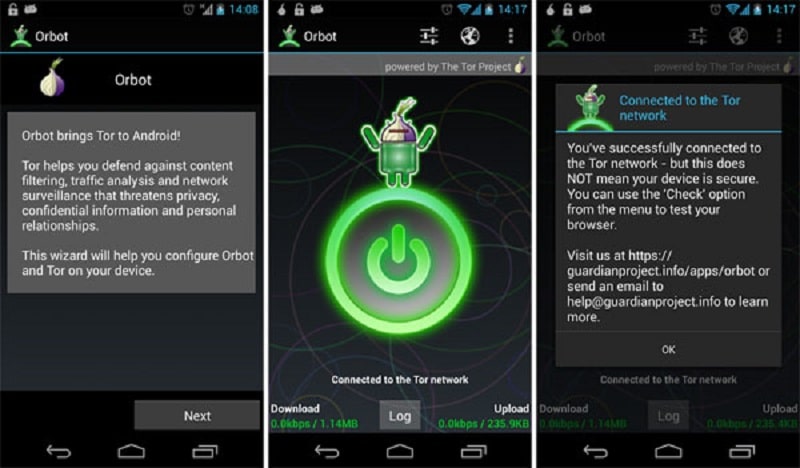
 To disguise your true location on the network while you browse, so servers don’t know where you are. The Tor network (Tor is short for the onion router, for reasons that will be obvious in a moment if you imagine an onion coming apart as you peel it), which was originally designed by the US Navy, aims: So let’s look quickly at how Tor works, how crooks (and countries with strict rules about censorship and surveillance) might abuse it, and just how scary the abovementioned headline really is. That sounds more than just worrying – it makes it sound as though using Tor could be making you even less secure than you already are, and therefore that going back to a regular browser for everything might be an important step. …then one in four of those visits (perhaps more!) will be subject to the purposeful scrutiny of cybercriminals. Loosely speaking, that strapline implies that if you visit a website using Tor, typically in the hope of remaining anonymous and keeping away from unwanted surveillance, censorship or even just plain old web tracking for marketing purposes… 23% of the Tor network’s exit capacity has been attacking Tor users
To disguise your true location on the network while you browse, so servers don’t know where you are. The Tor network (Tor is short for the onion router, for reasons that will be obvious in a moment if you imagine an onion coming apart as you peel it), which was originally designed by the US Navy, aims: So let’s look quickly at how Tor works, how crooks (and countries with strict rules about censorship and surveillance) might abuse it, and just how scary the abovementioned headline really is. That sounds more than just worrying – it makes it sound as though using Tor could be making you even less secure than you already are, and therefore that going back to a regular browser for everything might be an important step. …then one in four of those visits (perhaps more!) will be subject to the purposeful scrutiny of cybercriminals. Loosely speaking, that strapline implies that if you visit a website using Tor, typically in the hope of remaining anonymous and keeping away from unwanted surveillance, censorship or even just plain old web tracking for marketing purposes… 23% of the Tor network’s exit capacity has been attacking Tor users 
How Malicious Tor Relays are Exploiting Users in 2020 (Part I) Written as an independent research piece by an author going only by nusenu, the story is headlined: An article published on the open-to-allcomers blogging site Medium earlier this week has made for some scary headlines.






 0 kommentar(er)
0 kommentar(er)
